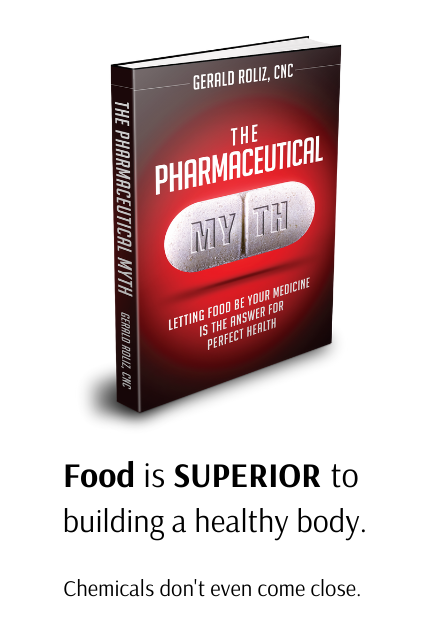Nutritional therapies encompass a vast array of dietary strategies designed to boost health and well-being. Developed over generations, these traditional diet regimens such as the Mediterranean or DASH diets focus on specific food groups to promote various health benefits, often aiding in the management of chronic conditions. However, nutritional therapy isn’t limited to these traditional diets. It may also include interventions addressing nutritional deficiencies, which can be essential in preventing or treating certain health conditions. So next time you reach for that snack, remember its power for your wellness.
The key principles of nutritional therapies involve utilizing whole and natural foods to prevent and reverse various diseases, such as diabetes, obesity, heart disease, arthritis, and depression. These therapies emphasize incorporating nutritionally dense foods while avoiding processed and anti-nutrient-rich items to support overall health and well-being.

Traditional Nutritional Therapies
Traditional nutritional therapies are like timeless treasures, passed down through generations and carefully preserved for their remarkable health benefits. The Mediterranean diet is one such gem – it’s like taking a culinary journey through Greece, Italy, and Spain all in one plate. This dietary pattern is rich in fruits, vegetables, whole grains, and healthy fats from olive oil, while also focusing on lean proteins. It’s not just about the food; it’s a way of life, celebrated for its association with reduced risk of heart disease and other chronic conditions.
The DASH diet is another standout dietary approach that has earned its place in the spotlight. By emphasizing the consumption of fruits, vegetables, and low-fat dairy products while reducing sodium intake, the DASH diet works wonders in lowering blood pressure. It’s an exemplary representation of how a well-crafted diet can go a long way in managing our health.
Let’s take a moment to savor the flavors and diversity embedded within these traditional diets. Imagine sitting down to a meal filled with vibrant colors from fresh produce or savoring the taste of extra virgin olive oil drizzled over a hearty salad. These diets aren’t just about sustenance, they’re about pleasure, culture, and history.
A lot of what makes these traditional dietary patterns so special lies in their resilience and adaptability; they have sustained communities through good times and bad. Whether it’s adapting to changing agricultural practices or standing the test of scientific inquiry, these diets continue to offer valuable insights that resonate with contemporary nutrition science.
What’s most striking about these dietary patterns is their versatility. It isn’t just about managing specific conditions, they can also serve as blueprints for overall health and well-being. Imagine feeling nourished by meals that not only satisfy your taste buds but also promote longevity and vitality.
By exploring these traditional nutritional therapies, we gain a deeper understanding of how time-tested dietary approaches play an instrumental role in promoting holistic health across different cultures and generations.
As we immerse ourselves in the richness of traditional nutritional therapies, we prepare to unravel the intricacies of addressing nutritional deficiencies through comprehensive treatments and preventive measures.
Nutritional Deficiency Treatments and Prevention
A crucial aspect of maintaining optimal health is ensuring that the body receives all the necessary nutrients it needs to function at its best. However, identifying deficiencies is an essential first step in addressing potential health issues related to nutrition.
Nutritional deficiency treatments usually commence with identifying specific deficiencies through lab tests and symptom evaluations. These tests can indicate if a person lacks certain essential vitamins or minerals crucial for bodily functions. For example, symptoms such as fatigue, muscle weakness, and bone pain may signify a potential vitamin D deficiency, while anemia, characterized by fatigue and decreased energy, could point to an iron deficiency.
Once a deficiency is identified, tailored treatment methods can be implemented. For instance, individuals with a vitamin D deficiency may benefit from supplementation or increased sun exposure, as sunlight assists the skin in producing the vitamin. On the other hand, iron deficiency anemia is often managed with iron supplements and dietary changes. Customized treatment plans form the cornerstone of effectively addressing specific nutrient deficiencies.
However, prevention strategies play a significant role in ensuring overall health and well-being. It involves not only treating deficiencies but also taking proactive measures to prevent them from occurring in the first place.
Promoting a balanced diet rich in fruits, vegetables, whole grains, lean proteins, and healthy fats can help prevent nutritional deficiencies. Regular monitoring through routine check-ups and lab tests aids in catching potential deficiencies early on, allowing for timely intervention.
In some cases, considering vitamin or mineral supplements may be necessary, especially for individuals with limited access to certain foods or those with heightened requirements due to illness or specific life stages.
By understanding the importance of identifying deficiencies, implementing tailored treatment methods, and embracing prevention strategies, individuals can take proactive steps toward achieving and maintaining optimal nutritional health.
Alternative Natural Nutrient Sources
While we typically think of fruits, vegetables, and lean meats as our primary sources of essential nutrients, there are a variety of lesser-known alternatives that can provide equally valuable vitamins and minerals. Let’s take a closer look at some of these alternative nutrient sources and how they can enrich your diet.
Seaweed
Seaweed has been part of Asian diets for centuries, and it’s gaining popularity in Western cuisine due to its impressive nutritional content. This marine vegetable is a powerhouse of vitamins and minerals, including iodine, calcium, iron, and folate. Incorporating seaweed into your diet, whether through salads, soups, or as a side dish, can be an excellent way to boost your iodine intake, which supports thyroid function and metabolism.
Spirulina and Chlorella
Spirulina and chlorella are types of nutrient-dense algae that have gained popularity in the health food community. These microscopic plants are abundant sources of protein, vitamin B12, iron, and antioxidants. Due to their high protein and vitamin content, they are often used as supplements or added to smoothies and energy bars to enhance nutritional value.
Quinoa
Quinoa is not only a source of plant-based protein but also contains a beneficial blend of essential vitamins and minerals such as magnesium, manganese, phosphorus, and folate. It’s a versatile ingredient that can be used in place of rice or pasta in many dishes. Additionally, quinoa’s complete protein profile makes it an ideal choice for individuals following vegetarian or vegan diets.
Spinach
Spinach is renowned for being packed with iron and folate, essential nutrients that contribute to red blood cell production and overall energy levels. This leafy green also provides an array of other micronutrients including vitamin K, vitamin A, manganese, and potassium. Whether enjoyed raw in salads or cooked into various dishes, spinach offers a convenient way to enhance your nutrient intake.
By incorporating these alternative natural nutrient sources like seaweed, spirulina, chlorella, quinoa, and spinach into your diet plan on a regular basis, you expand the diversity of vitamins and minerals your body receives. This diversified nutrient intake promotes overall wellness by ensuring you obtain a wide range of essential nutrients necessary for bodily functions.
Embarking on a journey toward holistic health involves not only what you ingest but also your lifestyle choices and dietary approaches. Let’s now turn our attention to exploring how these aspects play crucial roles in achieving overall well-being.
Lifestyle Choices and Dietary Approaches
When it comes to maintaining our health, what we put in our bodies is just one piece of the puzzle. Lifestyle choices also play a crucial role in how we feel and function every day. By making small changes in our daily habits and routines, we can contribute to our overall well-being.
Let’s start with stress management. Stress can negatively impact our health in so many ways—it affects our sleep, our immune system, and even our digestion. Managing stress isn’t just about taking bubble baths or going on vacation. It also includes finding healthy outlets for stress, like exercise, meditation, or spending time with loved ones.
The Marriage of Healthy Eating and Lifestyle Choices
Our dietary approaches are intimately entwined with our lifestyle choices. Consider this: if you’re not getting enough sleep, you might find yourself reaching for sugary snacks more often to stay awake during the day. Or if you’re not managing your stress well, it may lead to emotional eating, causing you to seek comfort in less-than-healthy food choices.
So, it’s clear that managing stress and getting adequate sleep goes hand in hand with maintaining a healthy diet. They support and reinforce each other.
Take the gluten-free diet, for instance. For individuals with celiac disease, following a gluten-free diet isn’t just about avoiding certain foods—it’s about lifestyle modification as well. They need to be vigilant in checking ingredients, being mindful of cross-contamination, and finding alternative sources of nutrients to replace those lost by cutting out gluten-containing grains.
Similarly, the low FODMAP diet isn’t just about what you eat; it’s about understanding how certain foods affect your body and learning to manage your symptoms through careful dietary adjustments.
As we explore holistic health through nutritional therapy, it’s essential to remember that dietary approaches are shaped by lifestyle choices, and vice versa. They work together as part of a comprehensive approach to maintaining health and wellness.
Understanding the interconnectedness of lifestyle choices and dietary approaches lays the foundation for successfully incorporating nutritional therapies into healthcare practices.
Incorporating Nutritional Therapies in Healthcare
The integration of nutritional therapies into healthcare is a crucial step towards achieving holistic well-being. This involves establishing a collaborative approach between dietitians, physicians, and other healthcare professionals to seamlessly integrate dietary interventions into comprehensive treatment plans. By working together, these professionals ensure that patients receive holistic care that addresses both their medical needs and nutritional requirements.
Collaborative care is essential because it allows for a multidisciplinary approach to addressing health concerns. Dietitians can provide valuable expertise in developing personalized nutrition plans tailored to an individual’s specific health condition, while physicians can monitor the patient’s overall health and ensure that the dietary interventions align with their medical treatment. Through ongoing collaboration, both the medical and nutritional aspects of a patient’s care are comprehensively addressed, leading to improved health outcomes and overall well-being. This collaborative model also extends beyond direct patient care to include regular communication and coordination between healthcare providers. This ensures that all members of the healthcare team are aligned in their approach, maximizing the effectiveness of nutritional therapies in managing various health conditions.
Patient education is essential for fostering a deeper understanding of how dietary interventions can positively impact overall health. Healthcare providers play a key role in educating patients about the benefits of nutritional therapies and guiding them through dietary changes to manage various health conditions. By equipping patients with knowledge about the relationship between nutrition and health, healthcare providers empower them to actively participate in their own well-being. Effective patient education involves clear communication, empathy, and tailored guidance that considers each patient’s unique circumstances. This may include providing resources such as educational materials, meal plans, and ongoing support to help patients navigate dietary changes effectively. Furthermore, by encouraging open dialogue and addressing any concerns or challenges patients may face during dietary transitions, healthcare providers can strengthen their partnership with patients and foster a supportive environment for embracing nutritional therapies as part of their holistic health journey.
Empowering patients with knowledge about nutritional therapies forms a solid foundation for fostering collaboration within the healthcare community. Now, let’s explore the pivotal role of healthcare professionals in advancing nutritional therapy approaches.
Role of Healthcare Professionals in Nutritional Therapy
When it comes to nutritional therapy, healthcare professionals play a crucial role in guiding individuals towards optimal health through personalized dietary advice and treatment planning. These professionals are not just educators but also compassionate supporters, working with individuals to understand their unique dietary needs, preferences, and health goals.
Nutritional counseling provided by healthcare professionals involves a deep understanding of an individual’s lifestyle, medical history, and health concerns. By taking these factors into account, healthcare professionals develop personalized nutrition plans that address specific health issues while also aligning with the patient’s preferences and goals. This tailored approach ensures that individuals receive comprehensive guidance that is both effective and sustainable.
| Diseases/Health Conditions |
|---|
| Diabetes |
| Heart Disease |
| Digestive Disorders |
| Hormonal Imbalances |
Furthermore, treatment planning in nutritional therapy goes beyond merely recommending certain foods or supplements. It involves creating comprehensive strategies that integrate nutritional therapies into the overall treatment plan for each patient. For instance, in cases where individuals have specific medical conditions, such as diabetes or heart disease, healthcare professionals devise holistic treatment plans that incorporate dietary interventions tailored to manage and improve these conditions.
For someone with diabetes, a healthcare professional might design a treatment plan that includes tailored dietary recommendations aimed at managing blood sugar levels and promoting overall well-being. This might involve educating the individual about carbohydrate counting, monitoring portion sizes, and selecting foods that help regulate blood sugar.
The commitment of healthcare professionals to providing personalized nutrition counseling and comprehensive treatment planning ensures that individuals receive the support they need to make meaningful and sustainable improvements in their health. By collaborating with healthcare professionals who specialize in nutritional therapy, individuals can access expert guidance that empowers them to take control of their well-being and make informed choices regarding their dietary habits.
If you’re seeking personalized nutrition counseling or comprehensive treatment planning to address your specific health needs, consider consulting with our team of healthcare professionals who specialize in nutritional therapy. Visit our website to learn more about how we can support you on your journey to optimal health.



